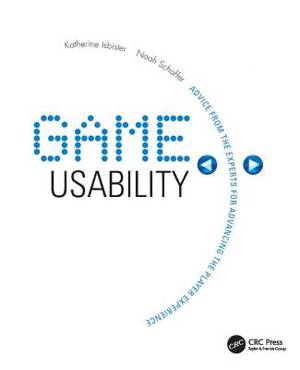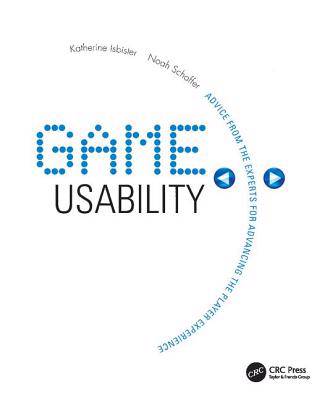
Bedankt voor het vertrouwen het afgelopen jaar! Om jou te bedanken bieden we GRATIS verzending (in België) aan op alles gedurende de hele maand januari.
- Afhalen na 1 uur in een winkel met voorraad
- In januari gratis thuislevering in België
- Ruim aanbod met 7 miljoen producten
Bedankt voor het vertrouwen het afgelopen jaar! Om jou te bedanken bieden we GRATIS verzending (in België) aan op alles gedurende de hele maand januari.
- Afhalen na 1 uur in een winkel met voorraad
- In januari gratis thuislevering in België
- Ruim aanbod met 7 miljoen producten
Zoeken
€ 223,95
+ 447 punten
Omschrijving
Gives game designers an understanding of how player characteristics impact usability strategy, and offers specific methods and measures to employ in game usability practice. This book also includes advice on how to include usability in development timelines, and how to advocate for usability and communicate results to higher-ups effectively.
Specificaties
Betrokkenen
- Auteur(s):
- Uitgeverij:
Eigenschappen
- Productcode (EAN):
- 9781138403239
- Verschijningsdatum:
- 26/07/2017
- Uitvoering:
- Hardcover
- Afmetingen:
- 191 mm x 235 mm
- Gewicht:
- 453 g

Alleen bij Standaard Boekhandel
+ 447 punten op je klantenkaart van Standaard Boekhandel
Beoordelingen
We publiceren alleen reviews die voldoen aan de voorwaarden voor reviews. Bekijk onze voorwaarden voor reviews.









